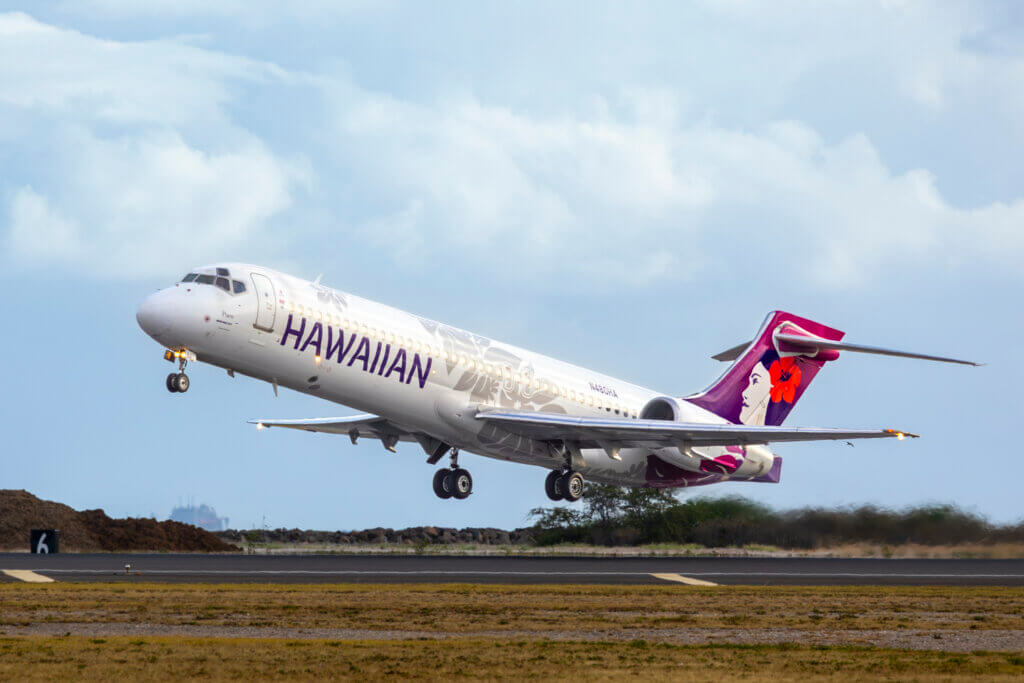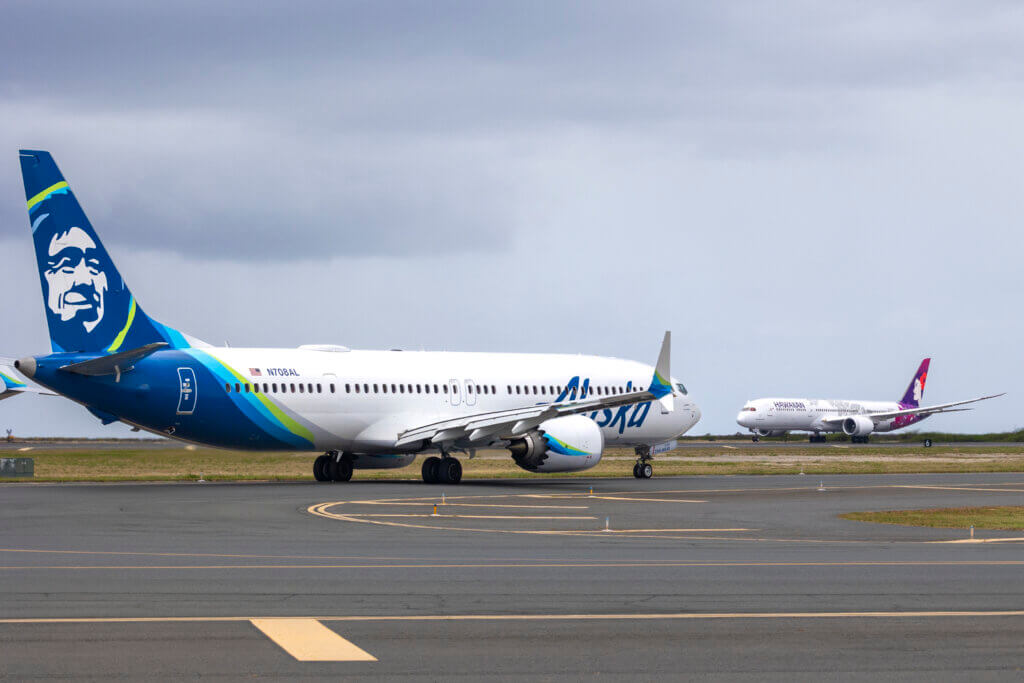The Department of Justice has been reviewing the proposed Alaska-Hawaiian merger, which was supposed to wrap up in less than a week. But it seems we’ll have to wait a little longer now, as the DOJ delayed its decision on the Alaska-Hawaiian merger.
The antitrust review of the Alaska-Hawaiian merger was always going to be the most difficult part of the entire process, and is also the final major hurdle before the transaction can close. Yeah, the unions also have to be contended with, but they ought to be easier to deal with in this situation. Well, it seems like the Department of Justice is having trouble completing their review on time, as the DOJ delayed its decision on the Alaska-Hawaiian merger, triggering rumors of a pending lawsuit and throwing the whole thing into question.
DOJ Delayed Its Decision on the Alaska-Hawaiian Merger
Rumors have been circulating for about a week know about the Department of Justice’s pending decision. Those rumors, distributed by outlets with questionable reliability, state that the DOJ is preparing to block the transaction. Well, I’m sure those rumors were strengthened yesterday as the DOJ delayed its decision on the Alaska-Hawaiian merger. I get it, the need for additional time is not a good sign, but I also don’t think it’s a deal killer, either. Let’s discuss.
As we all know, the DOJ was supposed to render its decision by August 5, which is already next Monday. However, as reported yesterday, the DOJ requested additional time, to which Alaska Air, Horizon Air, and Hawaiian Air all agreed. I don’t think they really had a choice in the matter, but they did. The DOJ’s decision is now due by August 15.
While everyone is making a big deal about the delay, I still don’t think it’s because the DOJ plans on blocking the merger. As I’ve said before, Alaska and Hawaiian have very little overlap when looking at their overall networks. However, when you focus in on West Coast-Hawai’i flying, the combined airline would control nearly 50% of available air seats. That, I’m sure, is the issue the DOJ is grappling with. That’s a sizable majority the combined airline will have, even though tons of competition remains, with American, Delta, Southwest, and United all flying many of these routes. In fact, looking at June 2024’s schedule, here’s how market share breaks down:
- Alaska: 15.02%
- American: 8.61%
- Delta: 11.19%
- Hawaiian: 25.33%
- Southwest: 14.37%
- United: 25.48%
As you can see, as it stands today, United is the biggest player in Hawai’i, and kind of has been for a while now. Of course, that changes with a merged Alaska and Hawaiian, which comes out to 40.35% market share. Note: these figures are a brief snapshot and these numbers do fluctuate throughout the year as seasonal routes are added and dropped. But having market share like this isn’t a deal killer.
A simple solution is for the DOJ to force the combined airline to give up rights on certain routes to encourage competition, but that may be easier said than done. However, I bet that’s the reason the DOJ delayed its decision on the Alaska-Hawaiian merger – they’re trying to figure this part out.
Competition
The above are a very high-level view of what’s going on. However, things get trickier when you drill down, and this is likely where the DOJ is getting a bit stuck. You see, while routes like LAX-HNL have tons of competition, others don’t. Examples of these include:
- PDX-HNL: only Alaska and Hawaiian operate a single flight each per day
- ONT-HNL: only Hawaiian
- SJC-HNL: one flight each for Alaska, Hawaiian, and Southwest
- SAN-HNL: a couple of flights each for Alaska and Southwest, one for Hawaiian
There are several others out there, especially when looking at non-Honolulu flights between Hawai’i and the West Coast. However, Southwest has also entered markets in which Hawaiian traditionally never had (or hasn’t had recent) competition, such as SMF-HNL and OAK-HNL. Why? Well, it’s just a matter of demand and airline operations.
Hawaiian flies where it flies because it has identified demand in/to those markets, and it can make it work from its hubs here in Hawai’i. Likewise, Alaska Air can make PDX work because it’s one of its hubs and there’s sufficient demand. Finding ways to break up what would become a monopoly there will be difficult, and could result in the DOJ seeking some sort of contractually binding guarantee instead. This is an example reason as to why the DOJ delayed its decision on the Alaska-Hawaiian merger.
Final Thoughts
While I’m disappointed that the DOJ delayed its decision on the Alaska-Hawaiian merger, I’m not giving up hope that it’ll get approved. There are ways to reasonably deal with any antitrust concerns they may have, and as I’ve mentioned before, Hawaiian is in rather a rather dire financial situation. If not Alaska, then who? A private equity company that may try to make things even worse? Alas, there’s no use dwelling on what may happen. We just need to be patient and wait an additional 10 days.


